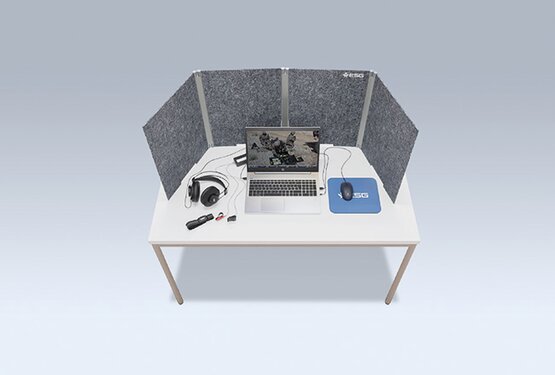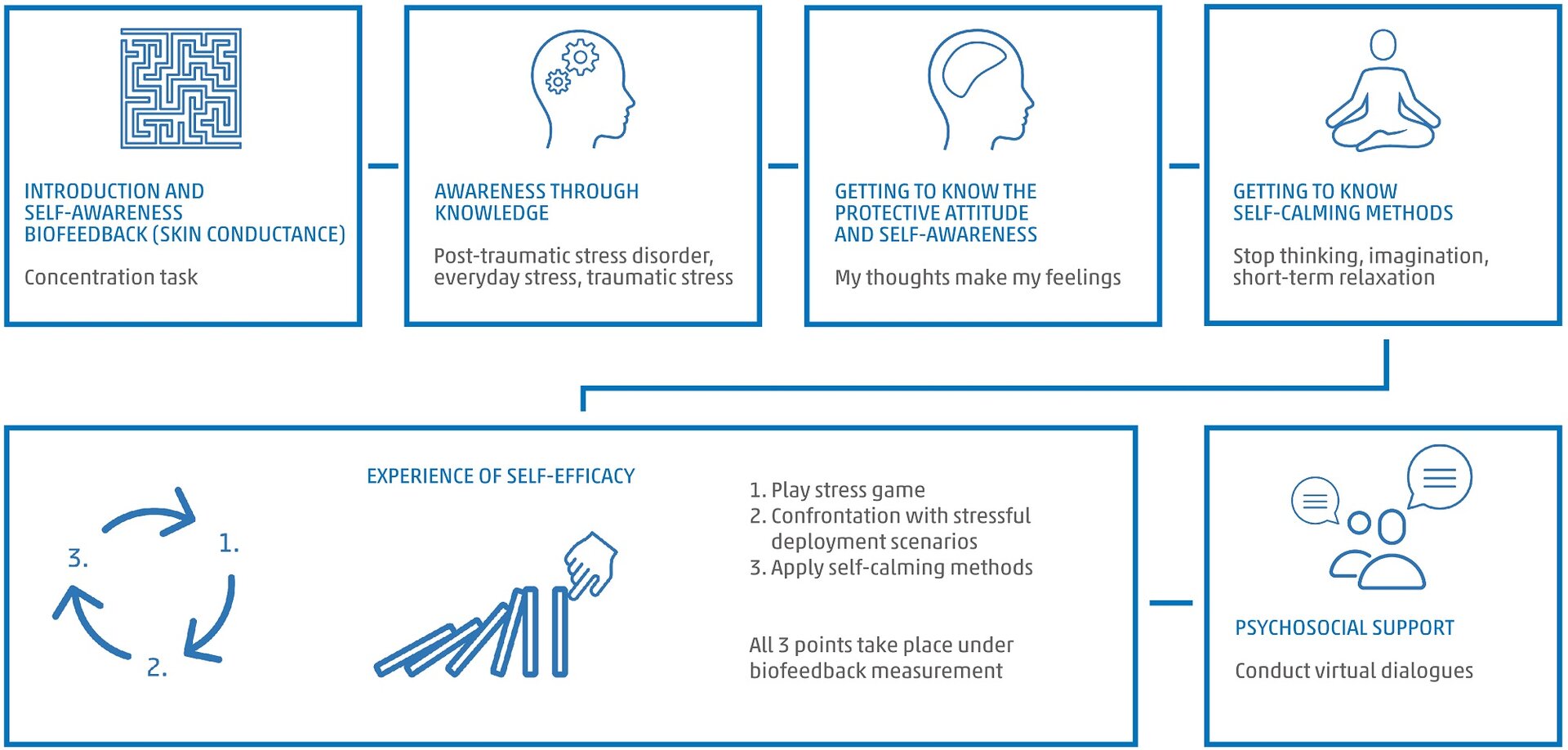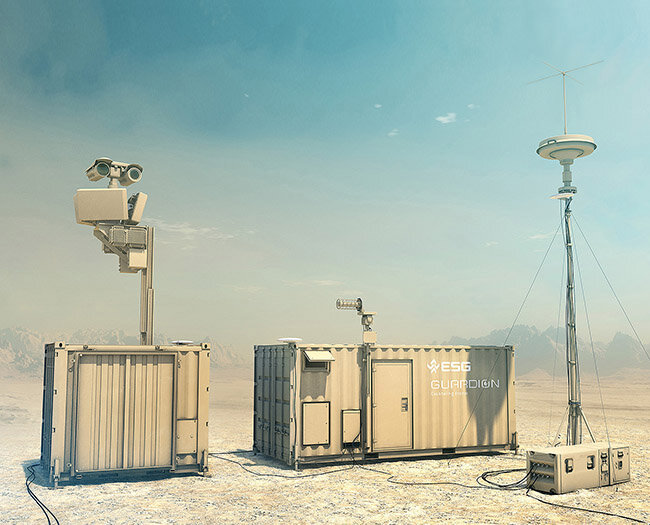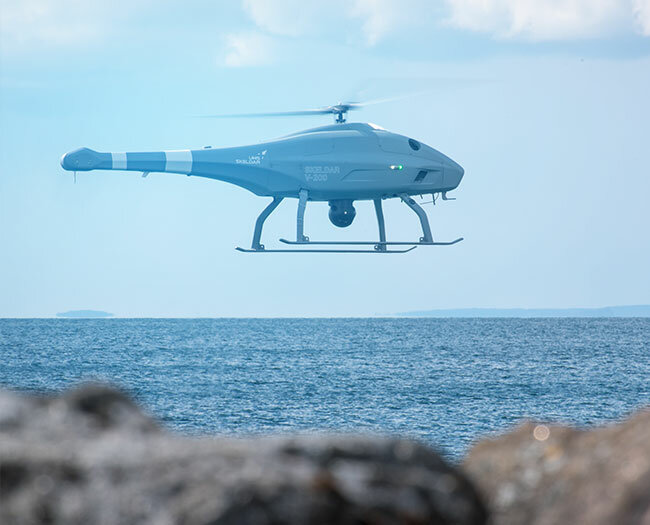
CHARLY BW
Training platform for psychosocial support and primary prevention of stress-related diseases and trauma-related disorders for military forces
The concept behind CHARLY BW differs significantly from other existing training approaches. With the CHARLY platform, training is not only given at a cognitive level in an interactive and sensor-based setting, but also individual behavioural training is initiated through self-awareness and experimentation with self-management methods.
In an evaluation study by the Bundeswehr’s Psychotrauma Centre, the effectiveness of the CHARLY method was compared with other well-known procedures. The results showed significantly fewer trauma-specific symptoms among CHARLY training participants following deployment abroad in Afghanistan. Accordingly, the CHARLY training has a higher degree of efficiency than the methods known hitherto for mission preparation or primary stress prevention.

Communication:
The participants practise communication – so that they can seek psychosocial support for themselves and also to be able to assist someone else in a mental stress situation by offering the opportunity to talk.
Knowledge:
This module addresses everyday stress, the differentiation from an acute stress reaction and the symptomatology of post-traumatic stress disorder. In addition, the module looks at the mental processes after experiencing traumatic stress, and the role of protective mental attitudes and appropriate personal beliefs in the prevention of stress-related disorders.
Self-calming:
Self-calming methods include active skills which help to reduce the vegetative over-excitement in an acute stress situation. Participants practise and try out three easy-to-learn, standardised and pragmatic relaxation techniques.
Self-efficacy:
Stress is induced in the training through a stress game and confrontation with a realistic deployment situation. After that, relaxation techniques are applied. This involves using physical monitoring to measure heart rate variability throughout the session. In this way the participants experience self-efficacy – they discover that through self-management they can control vegetative sensitivities in their body. The application of biofeedback is therefore an essential element of the CHARLY concept.
The training participants are guided through the system by a virtual coach. They experience their own stress reaction in an experiment. Case studies are used to illustrate the development and symptoms of post-traumatic stress.
They train selected stress management methods and test them in confrontation with realistically illustrated stress scenarios. Their effectiveness is immediately and objectively tested via the biofeedback interface.




